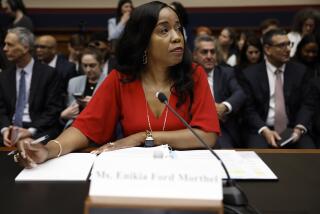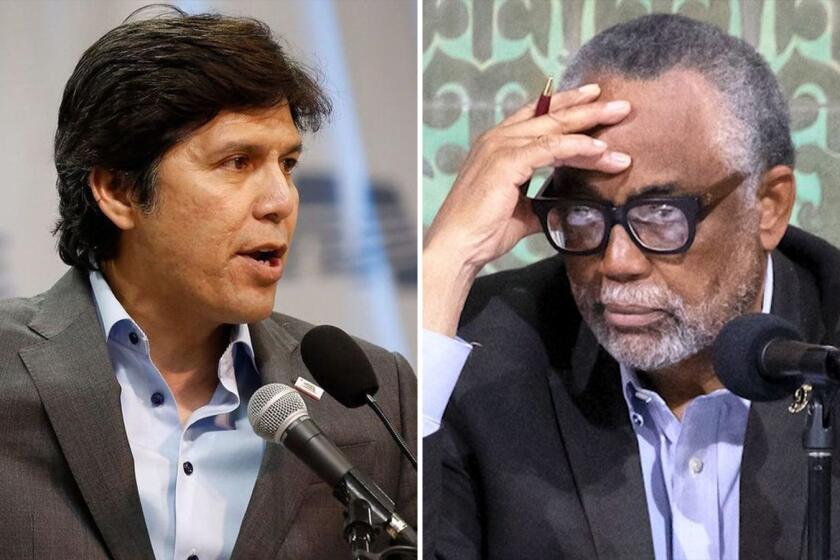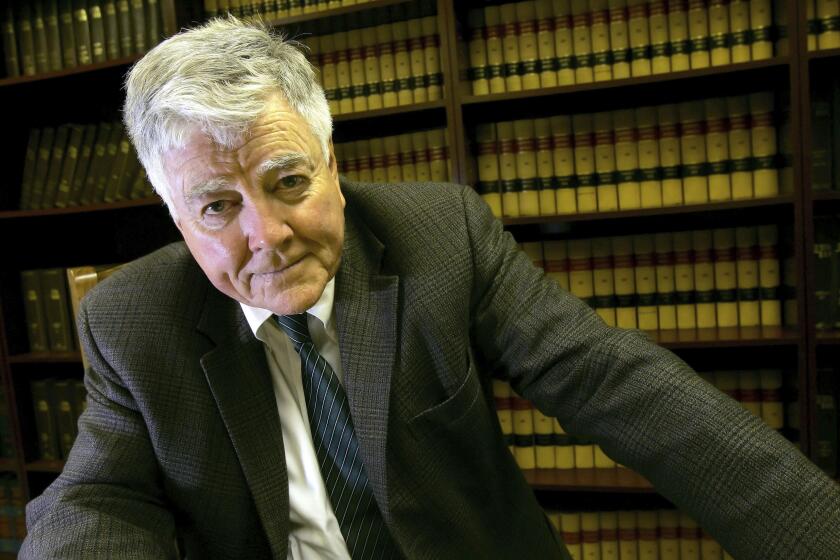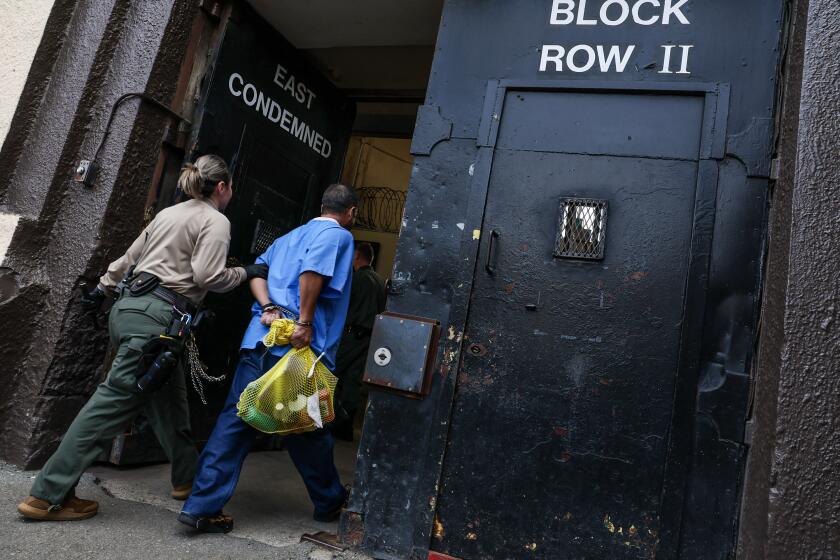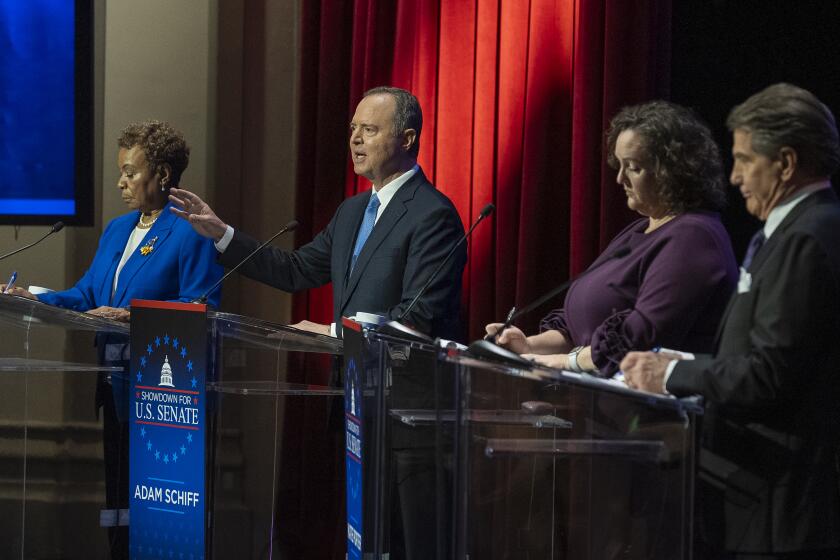Station Blacks Out Dornan So Potential Foe Can’t Ask Equal Time
Los Angeles radio station KFI-AM, which has featured Rep. Robert K. Dornan (R-Garden Grove) filling in for nationally syndicated talk-show host Rush Limbaugh this week, blacked out Dornan’s show Friday.
A KFI spokesman said the station decided to air alternate programming because of unanswered questions about whether Barbara Jackson, Dornan’s Democratic opponent in the Nov. 6 election, might have the right to demand equal time on the air.
Jackson withdrew from the Democratic primary in the 38th Congressional District in March, saying that she did not want her campaign to create a conflict with her job as an official with Planned Parenthood of Orange and San Bernardino counties.
But she won the primary anyway. She said then that she would not campaign against Dornan and that she did not consider herself a candidate. But her name is still slated to appear on the November ballot.
Alan Eisenson, KFI’s assistant program director, said the station consulted its lawyers earlier in the week about whether Jackson could legally demand equal air time under a Federal Communications Commission rule requiring equal access for political opponents.
The lawyers did not answer until Thursday night, after Dornan had been heard on more than 240 stations across the country, including KFI (640 AM), for four days. On legal advice, station manager George Oliva decided that KFI would not air the fifth show, Eisenson said.
“We’re under the impression that Barbara Jackson is not a bona fide candidate,” Eisenson said. “But we just wanted to be on the safe side. We don’t want to violate the FCC equal-time provision.”
Eisenson said the KFI switchboard received 50 to 60 calls from listeners who were angry or disappointed that Dornan was not on the air--an unusually high number of calls for a programming change.
Dornan told The Times that the equal-time question “never should have been an issue” because Jackson is clearly not a candidate. He said it is too bad that Los Angeles and Orange County listeners didn’t get to hear his most prominent caller Friday morning, Vice President Dan Quayle. Earlier shows this week featured calls from President Bush and Defense Secretary Richard Cheney.
Jackson was out of town and could not be reached for comment. But she said earlier this week that she was told by the FCC that she was entitled to equal time and would like to use it. She added, however, that she was uncertain what she would use it for.
Eisenson said Jackson called KFI earlier in the week about the equal-time issue but did not demand any air time.
“She just wanted to indicate that she was aware she might be entitled to equal time,” Eisenson said. “She was very cordial, very nice. She said she’d look into it next week.”
Eisenson said the station’s position is that Jackson does not have the right to demand equal time because she is not a genuine candidate.
Milton Gross, chief of the FCC’s political branch in Washington, said Friday that Jackson met two of the three criteria for receiving equal time by having qualified for the ballot and being eligible to hold the office. Whether she qualifies on a third point, being an announced candidate, is a bit murkier, he said.
Gross said the FCC has never grappled with an issue like the one posed by Jackson.
“The only question is, by withdrawing, does this person withdraw the public announcement?” Gross said. “We have never answered that question and would have to give it some thought. The station is going to have to make a decision. If anybody complains, we would take a look at it.”
Under federal law, television and radio stations must provide equal time to opposing candidates whenever a candidate who has qualified for the ballot appears recognizably on a broadcast that is not a newscast. The opposing candidates must request such time within seven days of the broadcast.
More to Read
Start your day right
Sign up for Essential California for news, features and recommendations from the L.A. Times and beyond in your inbox six days a week.
You may occasionally receive promotional content from the Los Angeles Times.

